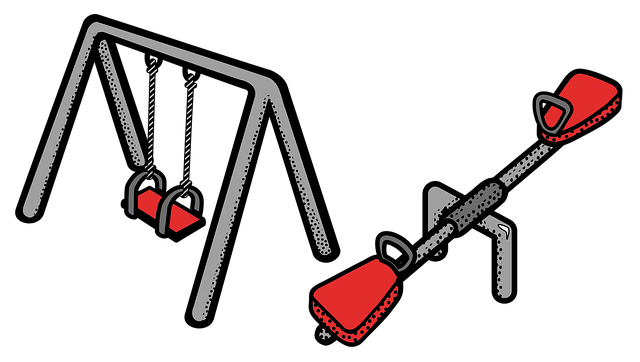Sober living homes in Mercer County provide transitional housing for individuals transitioning from rehab programs into a substance-free lifestyle. These homes offer a structured environment with rules, responsibilities, and support groups to aid recovery. They are designed to foster personal growth, teach healthy coping skills, and build supportive relationships within a secure setting. The homes ensure access to medical and psychological resources, 12-step meetings, and local support, emphasizing long-term sobriety. Residents engage in community living with peer mentorship and are expected to maintain employment or education, adhere to house rules, and participate in recovery activities. The aim is to create a seamless transition from treatment to independent living, with the support of both peers and staff members. These homes are critical in the recovery journey, acting as a bridge between rehab and fully integrated, sober life. They adhere to strict guidelines and state regulations to ensure the highest standard of care for individuals on their path to recovery.
In Mercer County, a tapestry of recovery options weaves support for individuals navigating their journey into sober living. This article delves into the multifaceted role of Sober Living Homes within the community, offering a comprehensive guide to understanding their significance in the recovery process. From the stringent criteria that define these homes to the myriad benefits they provide, including structured routines and robust support systems, we explore how Mercer County’s sober living environments offer a transformative step for those seeking lasting change. Join us as we examine the practicalities of transitioning to sober living, the challenges faced, and the abundant resources available for sustained recovery and growth. Through real-life success stories and insights into local activities and support groups, this article aims to illuminate the path that leads from the doorsteps of Sober Living Homes to a vibrant life in recovery.
- Understanding Sober Living in Mercer County
- The Role of Sober Living Homes in Recovery
- Criteria for Mercer County Sober Living Homes
- Benefits of Transitioning to Sober Living
- Finding the Right Sober Living Home in Mercer County
- Support Systems and Community Involvement
Understanding Sober Living in Mercer County

In Mercer County, sober living homes serve as a transitional environment for individuals who have completed a structured rehabilitation program and are seeking to reintegrate into society while maintaining a substance-free lifestyle. These homes offer a structured, supportive, and drug-free living arrangement designed to provide the necessary stability for continued recovery. Residents of these homes are typically expected to adhere to community guidelines, contribute to household chores, and actively participate in ongoing support groups or therapy sessions. This approach fosters accountability and responsibility, key components for sustainable long-term sobriety. The community within a sober living home often includes peer support networks, which are invaluable for those navigating the challenges of early recovery. These homes are strategically located to offer easy access to various forms of support and resources, including medical facilities, counseling services, and 12-step meeting groups, all critical in sustaining abstinence and promoting healing. The environment within these homes is one that encourages personal growth, the development of healthy coping mechanisms, and the cultivation of new, positive relationships. It is a space where individuals can safely explore their path to recovery, with the support of both peers and dedicated staff members committed to their success.
The Role of Sober Living Homes in Recovery

1. Sober living homes serve as a transitional environment for individuals who have completed a treatment program for substance use disorder and are seeking to reinforce their recovery outside of a structured rehabilitation setting. These residences provide a structured, supportive community where residents can develop routines, job skills, and social connections that support long-term sobriety. They offer a safe space free from the triggers and temptations associated with the environments from which many individuals are recovering. Within these homes, recovery is not just about abstaining from substances but also about healing and personal growth. Residents often engage in group activities, attend mutual support groups like Alcoholics Anonymous or Narcotics Anonymous, and participate in educational programs that emphasize the importance of maintaining a healthy lifestyle and building resilience against relapse.
2. In Mercer County, sober living homes are integral to the recovery community, offering a local network of support that is accessible to those transitioning from more intensive treatment settings. These homes adhere to guidelines that promote accountability and personal responsibility, often requiring residents to contribute to household chores, adhere to curfews, and maintain gainful employment or actively seek work. This level of structure and expectation helps individuals adapt to a drug-free lifestyle while fostering a sense of belonging and community. Additionally, these homes are staffed by peers who have experienced similar challenges, providing mentorship and guidance that can be more relatable and effective than formal treatment alone. The role of sober living homes in the recovery process is multifaceted; they not only offer a bridge between rehabilitation and independent living but also create an environment where healing from addiction can flourish in a supportive and empowering setting.
Criteria for Mercer County Sober Living Homes

Mercer County sober living homes provide structured environments for individuals in recovery from substance use disorders. These residences adhere to a set of criteria designed to support long-term sobriety and facilitate residents’ reintegration into society. To qualify as a sober living home, the facility must offer a safe, drug-free, and supportive housing option for individuals who are transitioning from treatment programs or seeking a stable environment conducive to recovery. Residents are typically expected to engage in gainful employment or education, adhere to a drug testing schedule, participate in community meetings, and respect house rules, which often include curfews and chores. Additionally, these homes emphasize the importance of personal responsibility and accountability within a peer-support system. The aim is to create an environment that fosters healing, growth, and successful long-term recovery without being a replacement for professional treatment or a 12-step program. Prospective residents should look for homes that are licensed and adhere to the state’s regulations, ensuring they receive the best support and care during this critical phase of their lives.
Benefits of Transitioning to Sober Living

Transitioning to a sober living home can offer a multitude of benefits for individuals recovering from substance use disorders. These environments are designed to provide a structured and supportive setting that fosters personal growth, accountability, and sustained sobriety. Residents in sober living homes engage in daily routines that mimic those of traditional living while under the auspices of a community that understands the challenges of recovery. This communal approach encourages peer support networks, which are pivotal in the early stages of recovery, offering both emotional and practical assistance.
Moreover, sober living homes often require residents to adhere to certain rules and responsibilities, such as maintaining employment or pursuing education, contributing to household chores, and attending regular 12-step meetings or therapy sessions. These requirements help residents regain life skills and confidence, preparing them for a future that is both drug-free and productive. The homes also provide an opportunity for individuals to reintegrate into society at their own pace, reducing the risk of relapse through a gradual transition from the more structured environment of rehab to independent living. This balance between support and independence is key in empowering residents to sustain long-term recovery.
Finding the Right Sober Living Home in Mercer County

When seeking a sober living home in Mercer County, it’s crucial to consider the specific needs and goals of the individual. These homes serve as a transitional environment for those who have completed a rehabilitation program and are looking to reintegrate into society while maintaining sobriety. Prospective residents should evaluate the proximity to support networks, including recovery communities and healthcare services, as well as the home’s rules, structure, and community atmosphere. The level of supervision and the quality of aftercare programs offered can significantly influence the effectiveness of the transition. It’s also beneficial to assess the home’s approach to individual treatment plans, ensuring that it aligns with one’s personal recovery journey. Additionally, potential residents should consider the residential environment’s safety, cleanliness, and the overall living conditions, as these factors can play a pivotal role in sustaining long-term sobriety. By carefully researching and visiting multiple options, individuals can increase their chances of finding a supportive and stable sober living home that meets their unique requirements for sustained recovery in Mercer County.
Support Systems and Community Involvement

Mercer County’s sober living homes offer robust support systems that are integral to the recovery journey of individuals. These homes are designed to provide a structured and safe environment where residents can heal and rebuild their lives free from the constraints of substance abuse. A key component of this support is the communal living aspect, which fosters a sense of belonging and accountability among residents. Peer support groups such as Alcoholics Anonymous or Narcotics Anonymous often play a pivotal role within these homes, offering a platform for shared experiences and mutual encouragement. The homes also engage with local community resources, integrating individuals back into society by facilitating connections with recovery-focused services, vocational training, and educational opportunities. This holistic approach ensures that residents not only maintain sobriety but also develop the skills necessary to lead fulfilling lives. The involvement of local organizations and volunteers further enriches the community, as they contribute time, expertise, and support, creating a network of care that extends beyond the home’s walls. Through these collaborative efforts, sober living homes in Mercer County create an environment where recovery is not just a personal endeavor but a collective effort supported by a strong, engaged community.
In conclusion, Mercer County’s network of sober living homes offers a structured environment that plays a pivotal role in the recovery journey for individuals seeking to maintain sobriety. These residences meet rigorous criteria ensuring they provide safe and supportive spaces. The transition from more intensive treatment programs to sober living allows for a gradual reintegration into society, equipped with the skills and resources necessary for long-term recovery. With a robust support system and community involvement, Mercer County’s sober living homes stand as testament to the possibility of a sustained, healthy, and fulfilling life post-treatment. For those navigating this path, finding the right home within this network can be a transformative step towards a brighter future.

